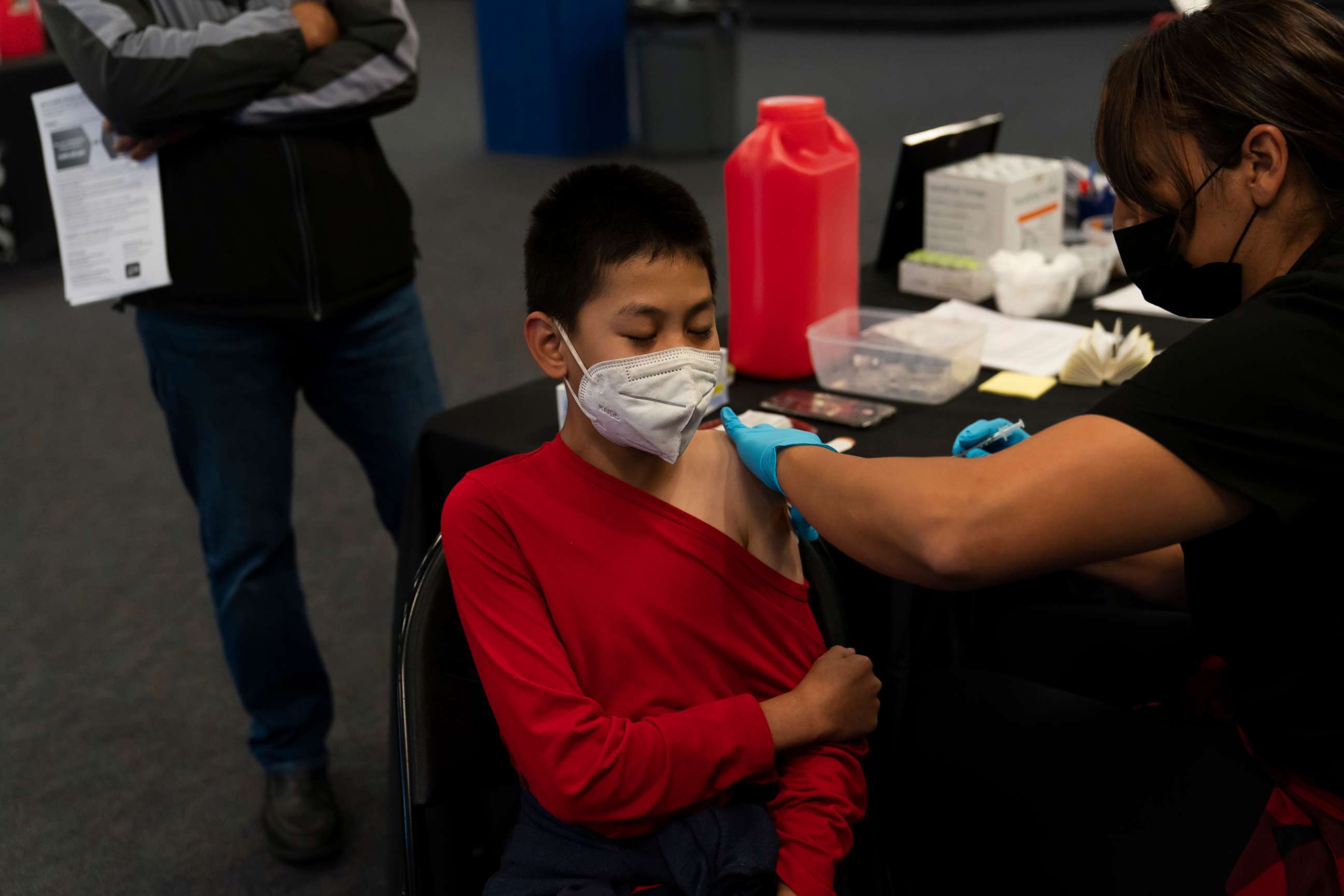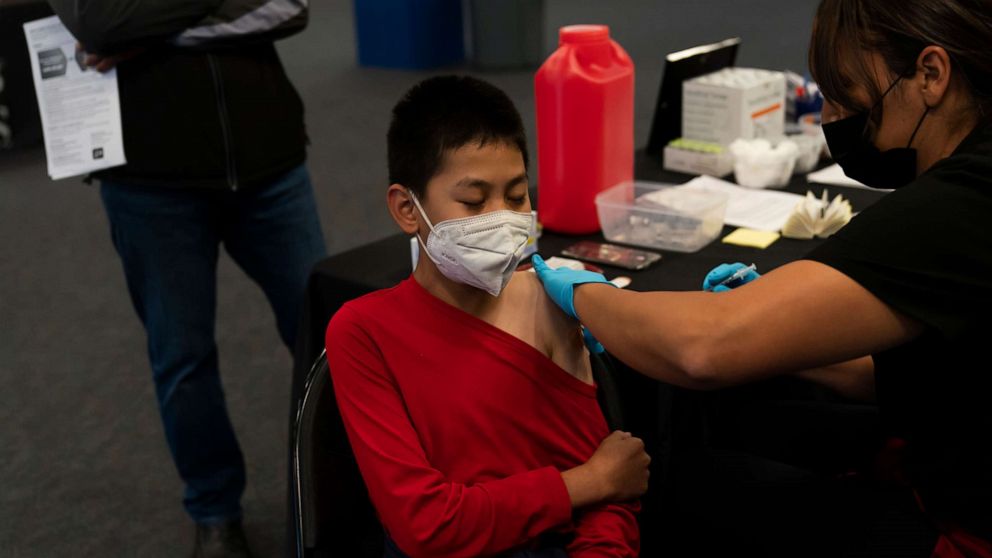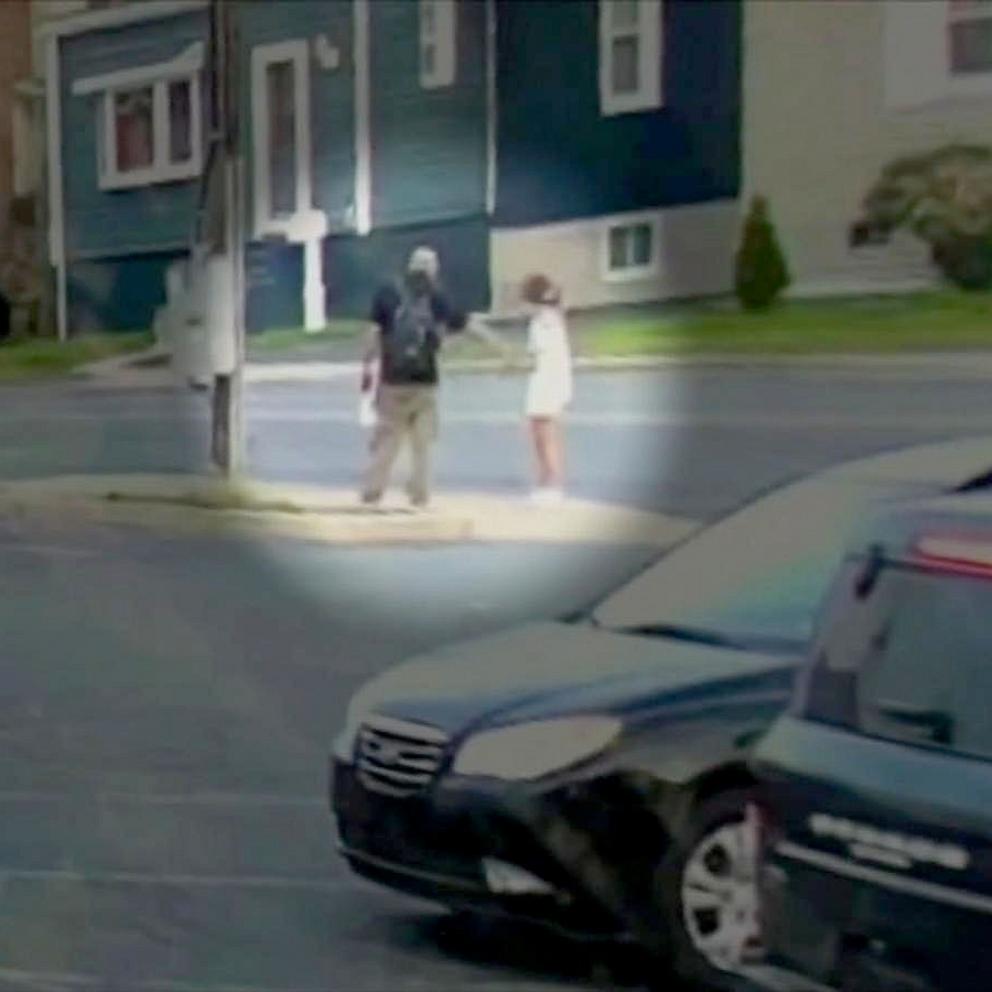When will vaccines be authorized for kids under 5? Here's what we know
When a judge on Monday overruled the mask mandate on public transportation, parents with kids too young to be vaccinated felt renewed anxiety about the country moving too quickly toward pre-pandemic normalcy while they were still stuck in a pre-vaccine world.
But there is hope that parents will be able to vaccinate their kids under five years old soon — perhaps as early as June, according to top Biden administration officials.
Neither vaccine companies, Moderna or Pfizer, have fully submitted their data to the FDA yet, the FDA said on Thursday.
But Moderna, which has a two-dose vaccine for children under five, is expected to officially file a request for authorization with the Food and Drug Administration by the end of April, a spokesperson for the company confirmed.
And Pfizer, which has been conducting clinical trials on a three-dose vaccine for kids under five, is expected to have results by early May, which it will then turn over to the FDA. In a recent podcast interview, the company’s CEO said he expects an authorization sometime in June.
In the meantime, the Food and Drug Administration has already notified the members of its independent panel, which would review the vaccine data ahead of the authorization, to reserve time for a meeting as soon as June 1, according to a source familiar with the plans. However, the dates were flexible and could get pushed back.
The question, however, is whether regulators will authorize Moderna a few weeks ahead of Pfizer, or wait to authorize them at the same time — in June — in an effort to minimize confusion.

In an interview on Thursday with CNN+, White House medical advisor Dr. Anthony Fauci suggested that regulators will do them both at the same time.
Fauci said that the purpose of authorizing both at once, rather than Moderna a few weeks ahead of Pfizer, would be to not "confuse people."
"It's going to be two separate companies, two products that are similar but not identical, particularly with regard to the dose,” he said, explaining that Moderna's regimen for kids under five is two doses, while Pfizer's is three doses.
“And what the FDA wants to do is to get it so that we don't confuse people,” Fauci said.
The vaccines also have different efficacy rates, so by reviewing the data together, the FDA and its independent panel of advisors could give parents an overview of how the two vaccines might compare.
Asked multiple times by CNN’s Kasie Hunt why parents couldn’t be expected to navigate having two options separately authorized around the same time, particularly for those who are eagerly waiting for a vaccine as soon as possible and would take whichever came first, Fauci said he couldn’t answer.
“I can't really honestly answer that question because I don't know the answer to that question. Because I don't have all the data in front of me,” Fauci said, adding that the data before the FDA was confidential while it was under review.
Still, Fauci confirmed that Pfizer’s vaccine would likely be authorized in June, meaning the wait would only be a few weeks, at most.
Dr. Peter Marks, the FDA’s vaccine chief, has said that it's a priority to handle the authorization of vaccines for young kids with extensive care so parents trust the final product. In older age groups, like kids 5 to eleven, only around a quarter of kids have been vaccinated since it was authorized five months ago.
“We know that in this population, we have to do our job extremely well to ... ensure that there is a very good evaluation of the safety and effectiveness, so that when we make our recommendation, people will trust that recommendation,” Marks said at a press conference last month.
On Thursday, the FDA said it would work with urgency to authorize vaccines for kids once the companies submit the data, while also “adhering to our rigorous standards for safety and effectiveness.”
The agency also said that lower case counts and hospitalizations since the omicron surge had no effect on the urgency of the process.
“It is inaccurate to say that minimal hospitalizations and death play a part in any timeline as one death of a young child is tragic,” FDA spokesperson Abby Capobianco said in a statement.
But questions remain about the potential for regulators to authorize both vaccines at once, which could mean parents have to wait a few weeks longer to vaccinate their young children.
Dr. Diego Hijano, a pediatric infectious disease specialist at St. Jude Children’s Research Hospital, cautioned against the FDA “overthinking” and trying to predict how people will take vaccine news.
When it comes to vaccine hesitancy, “most people have made their choice already,” said Hijano, who is also an investigator for the Pfizer vaccine trials.
“So the fact that we are still wondering how it will affect people's confidence in the vaccine -- people's confidence in vaccine has not changed significantly over the last year,” Hijano said.
Instead, Hijano vouched for authorizing the Moderna vaccine as soon as its ready. Even if the vaccine is two shots now, he said he predicted that the Moderna shot, like the Pfizer vaccine, would eventually be a three-shot vaccine — as most vaccines now are with the addition of boosters — and they would be very similar.
But the FDA cannot base its decisions on data it doesn't have -- and Moderna doesn't have data yet on a third shot for its youngest age group.
“Today, there are no options,” Hijano said. “And the Moderna vaccine data, it's really good. So why wouldn't you offer that to parents that want something to protect their kids?”
But Hijano also stressed that the timeline for kids under five getting vaccinated has been unpredictable. To help with anxiety, he’s moved away from focusing on dates and advises parents to try to find ways to feel normal in the meantime.
“I think at this point, parents should just sit back and say the vaccine will be ready when it's ready. We cannot plan around when the vaccine is going to be ready,” Hijano said.
“So the way we have been approaching this with parents is, ‘Okay, let's just take a step back and say, what are the things we can do to protect kids under five? And when the vaccine becomes available, then you vaccinate them.' But at this point, that's very uncertain,” he said.




